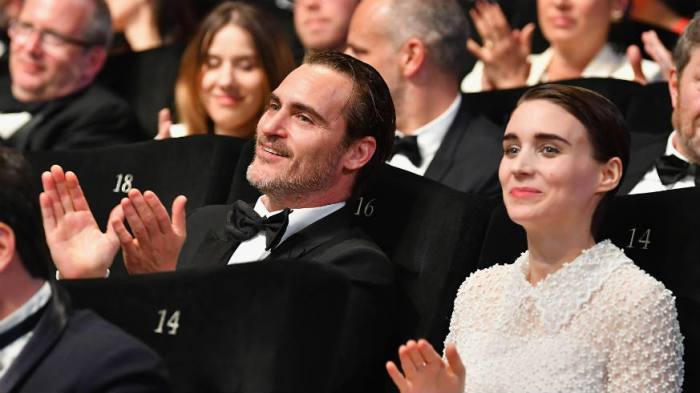The 2017 Cannes Film Festival officially began yesterday, with the French drama “Ismael’s Ghosts,”directed by Arnaud Desplechin. The movie follows a filmmaker (Mathieu Amalric) whose life is sent into a tailspin by the return of a former lover (Marion Cotillard) just as he is about to start shooting a new film.
However, this movie is not playing in competition. Those began screening on Wednesday night with “Loveless,”a Russian drama from Andrey Zvyagintsev, and Todd Haynes’ “Wonderstruck“on Thursday morning. It’s amazing how different they turned out to be.
“Loveless” is a cold, cruel and gloomy film, merciless towards its characters. It reveals all manner of defects in Russian society. The family featured in it is going through a divorce. The mother has a new lover; her husband is about to have a child from another woman. Hating each other, both characters ignore their 12-year-old son, who runs away from home. Volunteers conduct thorough searches;they are the only ones who give viewers at least a bit of hope.
“Loveless” doesn’t so much tell a story as scream about human insensitivity, about the disintegration of any connections between people. As in Zvyagintsev’s “Leviathan,” the political environment makes this degradation irreversible. Characters live in an unspoken expectation of the end of the world (back in 2012, as it were). “Loveless”does not offer or even allow any possibility of a different destiny. And that’s where its faults lie. Being direct is important, yes, but there is no answer or clue on how to live further.

After watching “Loveless” (pictured above), it’s amazing how much love is highlighted in “Wonderstruck.” Half-black-and-white, half-color, very musical yet laconic, the movies tells as frightening a story about childhood as in Zvyagintsev’s drama, but to very different ends.
The action takes place in two eras. In the 1970s, in the wilderness of Minnesota, a boy tries to deal with the loss of his mother (Michelle Williams) and find the father he never met. In a parallel story, set in 1920s New York, a deaf girl (Millicent Simmonds) runs from an insensitive father to find her mom, a famous actress (played by another famous actress, Julianne Moore). Somehow, the boy from the future gets to know Simmonds character and becomes deaf.
The amount of love director Todd Haynes and screenwriter Brian Selznick have invested in the movie — the reconstruction of two eras, the music, the look of the film — will be rewarded. This melodic and touching drama will be loved as much as “La La Land” and “The Artist.” Zvyagintsev’s “Loveless,” by contrast, does not seek any love. But both films clearly look forward to awards. Whether any of them receives one will be announced only on May 28. And then we will understand what is more important to Cannes’ judges: tender optimism or cruel realism?


















